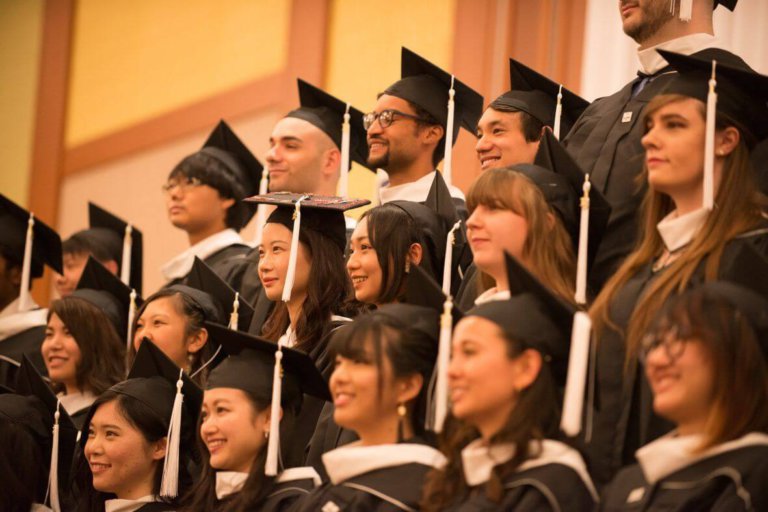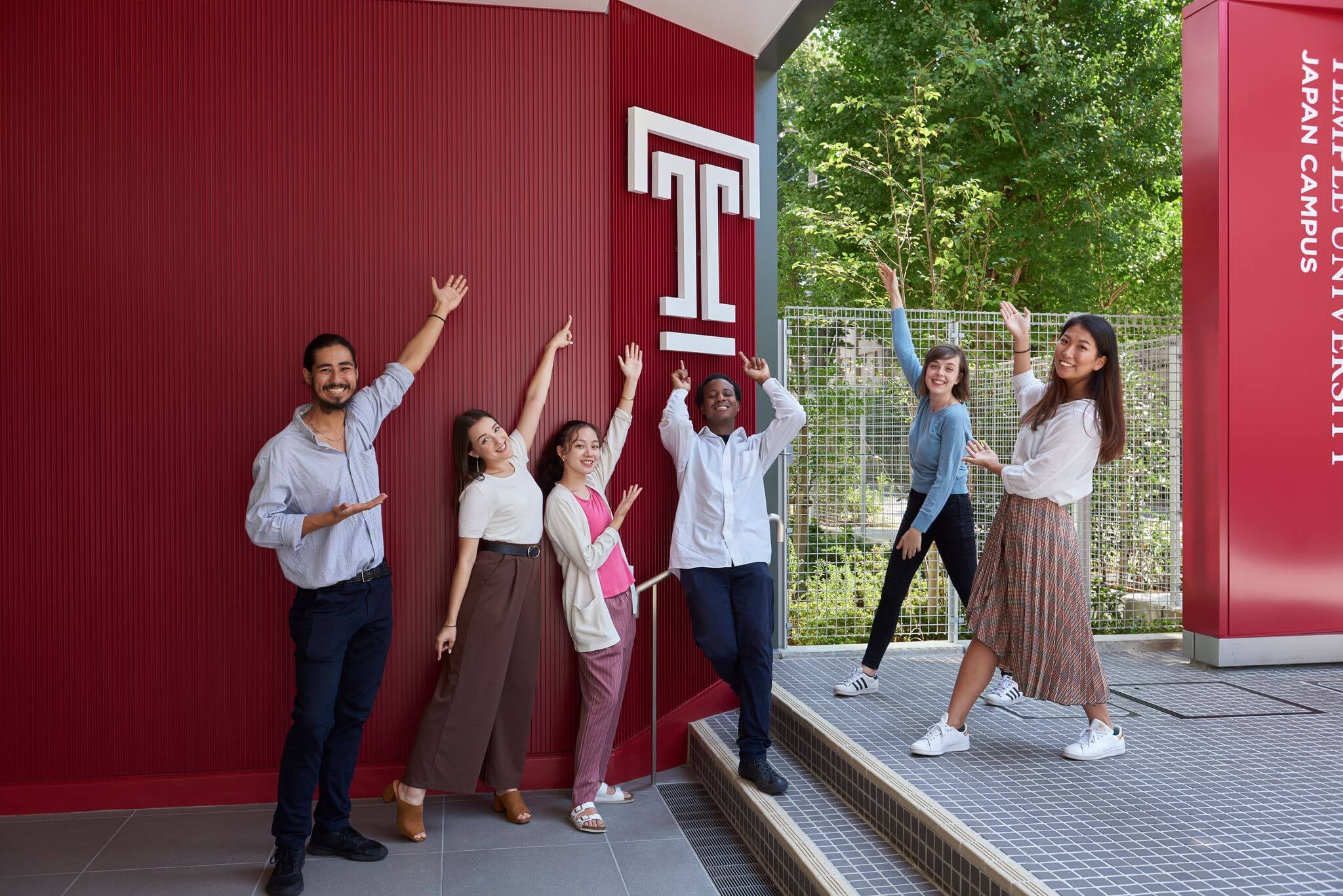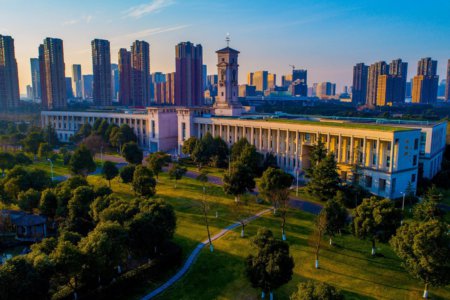
Closer to home, affordability, more flexibility — these are the key perks of studying at branch campuses. These refer to the physical presence of a university that’s distanced from the original university or college area. It can be located in a different city, state or country. Resources and administrations, however, are shared.
Students are typically conferred degrees from the home institution or share the same budget/accreditation — with no need to deal with fussy visa regimes or out-of-reach living costs. In short, branch campuses offer the best of both worlds.
In 2021, branch campuses are at peak relevance. With hundreds of thousands of students unable to leave their home countries or enter their destination countries due to pandemic-related restrictions, having top-quality offerings means one’s international education can progress without delay. Freshmen can commence programmes, seniors need not take unscheduled — and in many cases, unwanted — gap years.
These four branch campuses in Asia offer just that, plus a world-class education.
Temple University, Japan Campus
At Temple University, Japan Campus (TUJ), you’ll have the unique opportunity to earn an American undergraduate or graduate degree in the futuristic megalopolis of Tokyo. Classes are small — the average class size is 19 — with lively discussions and personalised attention. Curriculum follows the same course content as that of Temple’s main campus in Philadelphia — one of the US’s largest research universities. Classes are taught in English. Language courses are offered in Chinese, Korean, and Spanish, with Japanese courses offered from beginner to advanced levels.

Temple University, Japan Campus (TUJ), is the oldest and largest foreign university in Japan – located in Tokyo. Source: Temple University, Japan Campus
As part of your degree program, you’ll be able to intern at a range of global companies, organisations, and embassies in Tokyo — a distinctive feature of TUJ’s student-first approach to education. The result? Graduates who are equipped with the tools necessary to imagine, explore, succeed, and lead in an ever-changing global workplace, enabled to thrive in an interconnected and complex world, and empowered to positively affect local and global communities. TUJ boasts a 96.9% employment rate among graduates. For all of this, you’ll pay significantly less than the average out-of-state tuition at public and private US universities.
The campus environment is rich, dynamic, and stimulating. You’ll benefit from being immersed in a multicultural and inclusive environment with students coming from approximately 60 countries around the world.
TUJ is the oldest and largest foreign university in Japan, the first educational institution in the country to be officially recognised as a Foreign University, Japan Campus by Japan’s Ministry of Education, Culture, Sports, Science and Technology. This means TUJ can sponsor student visas, enabling international students to study at the university on either a short-term basis (one or two semesters) or a long-term basis (such as to complete a full four-year program).
To learn more about this institution accredited by the Middle States Commission on Higher Education, click here. TUJ awards credit for Advanced Placement, International Baccalaureate, and A-Level.
Duke-NUS Medical School
Duke-NUS is Singapore’s only graduate-entry medical school, established as a landmark collaboration between two elite higher education institutions — Duke University and the National University of Singapore (NUS). Here, the brightest minds from a diverse range of backgrounds are nurtured to not only be exemplary clinicians but also influential leaders who advance the practice and science behind medicine.

Duke-NUS offers world-renowned pedagogy, internationally-recognised research, cutting-edge Academic Medicine, sophisticated facilities. Source: Duke-NUS Medical School
Education from Duke-NUS is impactful — an attribute that attracts entrepreneurial students who desire unconventional paths. Talents from all walks of life, such as arts and humanities graduates to engineers, pharmacists, lawyers, bankers and more, stand to gain highly tangible outcomes through translational research here, as well as a global view that integrates research and clinical application.
As the COVID-19 pandemic has revealed, medical training that is solely focused on treating diseases will only result in knowledge gaps. That’s not the case with Duke-NUS’ “Clinician First, Clinician Plus” approach to medical training. Their MD, MD-PhD and PhD curricula are innovative and future-forward, incorporating additional elements of healthcare practice such as patient safety, quality improvement, systems thinking and healthcare leadership.
Access to some of the world’s most sophisticated biomedical research facilities complement these education initiatives. World-class scientists are transforming our understanding of diseases and improving lives at Duke-NUS’ Centres, which are dedicated to investigating key issues faced by societies in the region and beyond, including ageing. The five world-class Signature Research Programmes offered at Duke-NUS include Cancer and Stem Cell Biology, Neuroscience and Behavioural Disorders, Cardiovascular and Metabolic Disorders, Emerging Infectious Diseases and Health Services and Systems Research.
The Duke-NUS campus is located on the grounds of Singapore General Hospital (SGH), which is the country’s first and largest hospital. For the past two years, SGH has also been ranked one of the top 10 best hospitals in the world. SGH is part of the Singapore Health Services (SingHealth) cluster of healthcare institutions — the largest healthcare group in Singapore — that delivers multidisciplinary care among 42 clinical specialties across a large network of hospitals, national specialty centres and polyclinics.
Duke-NUS is also in a dynamic partnership with SingHealth, allowing students to benefit further from their joint capabilities and infrastructure. The SingHealth Duke-NUS Academic Medical Centre merges the school’s medical education and research capabilities with the group’s clinical expertise. Together, healthcare is improved, patient outcomes are advanced and clinical care, education and research are integrated.
World-renowned pedagogy, internationally-recognised research, cutting-edge Academic Medicine, sophisticated facilities — these are the factors that define Duke-NUS. To find out more about how this top medical school will empower you to transform medicine and improve lives, click here.
University of Nottingham Ningbo China

Over 8,000 students, representing about 60 countries and regions call UNNC home. Source: University of Nottingham Ningbo
Walk into the University of Nottingham Ningbo China (UNNC), China’s first Sino-foreign university, and its diversity is instantly obvious. Over 40% of postgraduate students receive entry-based scholarships to gain a distinctive UK education here, incorporating the best of its location at the heart of East Asia.
This Top 100 university nurtures more than just academically qualified graduates. In its 29 undergraduate courses and 18 postgraduate taught courses, students earn transferable skills, a creative outlook and a fresh perspective — an invaluable combination that makes them in demand by employers around the globe. They learn in English and from faculty members either seconded from or appointed to the standards of the University of Nottingham.
The setting for this truly international education is UNNC’s cosmopolitan 144 acre (584,666m²) campus in Ningbo, Zhejiang province — a 7,000-year-old city with a fascinating identity and history. This is where over 8,000 students, representing about 60 countries and regions, call home.
More than 70 societies and 20 service-oriented student organisations enliven the campus still. Once travel restrictions ease, students can supplement their global experience in and beyond UNNC’s classrooms with study abroad programmes that span across 40 countries and regions. To find out more about UNNC’s unique advantages, click here. Various scholarships and financial plans for exceptional degree programme applicants are available at UNNC.
Monash University Malaysia
Established in 1998, Monash University Malaysia is part of the premier research-intensive Australian university ranked among the top 100 universities in the world by the Times Higher Education World University Rankings, a member of Australia’s prestigious Group of Eight (Go8) and also ranked 55th in the QS 2021 World University Rankings. As the first foreign campus to be set up in Malaysia, Monash University Malaysia has forged a prolific path with a growing list of successful graduates.

Monash University Malaysia is an established brand today. Source: Monash University Malaysia
“Monash inspired me through providing a strong infrastructure and support system throughout my education, from tutors who were passionate and competent, to staff from the career development team who helped connect us with employers; which eventually led me to securing my first job before I graduated!” shares Bachelor of Business and Commerce graduate Charis Wong, who is now a Senior Associate (Deals Strategy) for PwC Malaysia.
Today, Monash University Malaysia is an established brand. Graduates know the Monash KL outpost as a bustling hub of opportunity. Home to approximately 8,400 students from 78 countries, it is an environment rich with intellectual discourse, culture and activities — filled with facilities that enable it, such as excellent catering facilities, food outlets, gymnasium and outdoor swimming pool.
They remember the talented faculty members that guided them to their success, i.e. highly qualified academic staff members from across the world that uphold the same rigorous standards applied at the rest of Monash’s thriving campuses in the continents of Australia, Asia and Europe.
With more than 100 partner universities across the globe, Monash University Malaysia is globally-connected in more ways than one. Strong links with industries and governments, provide more opportunities for research, education and engagement within Southeast Asia and beyond. In other words, Monash University Malaysia is offering the very best in higher education that is possible within Malaysia and the region.
*Some of the institutions featured in this article are commercial partners of Study International










